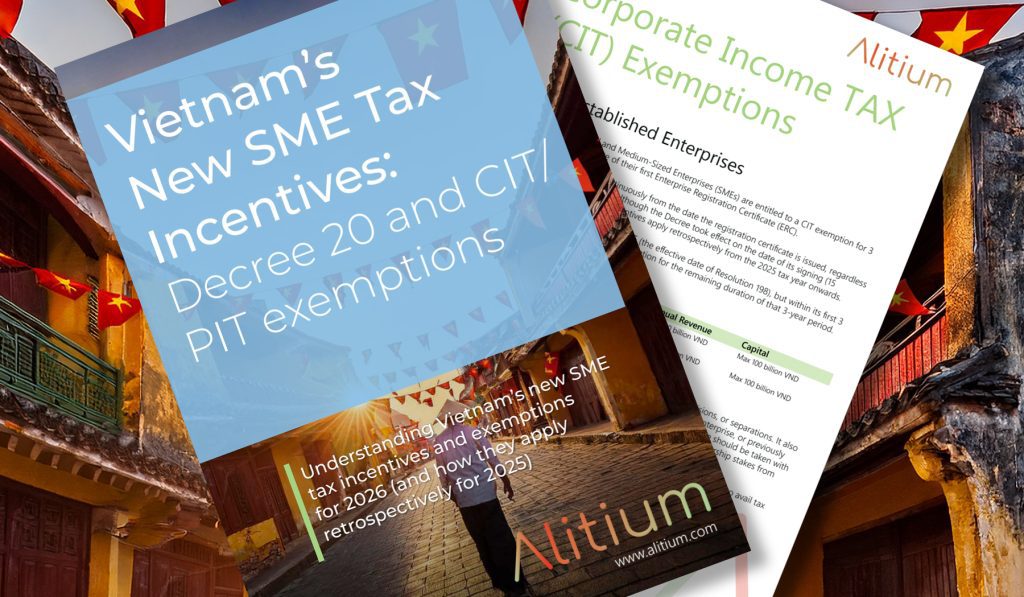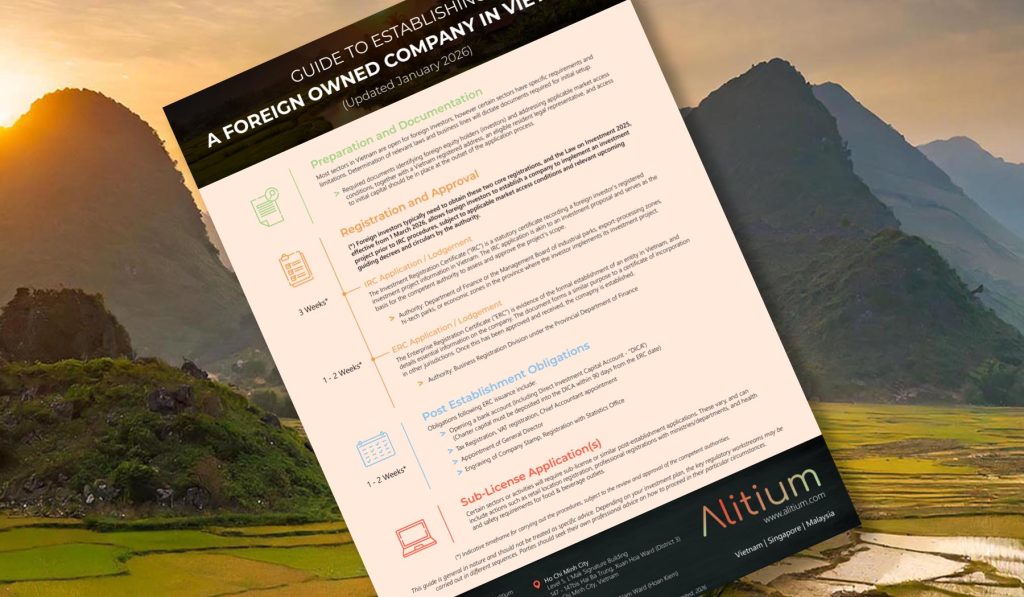Incorporating and Operating a Private Company in Singapore
Overview
This document is prepared to provide a practical and comprehensive guide for organizations and businesses considering the establishment of a private limited company in Singapore – one of the world’s leading global business hubs. With a transparent legal framework, streamlined registration procedures, and attractive business support policies, Singapore has become an ideal destination for investors seeking to expand their operations in the Asia-Pacific region.
Purpose and Scope of This Guide
Singapore has long established itself as a leading global business hub, consistently ranked among the most competitive economies worldwide. With its transparent regulatory framework, robust legal system, efficient corporate governance, and competitive tax regime, the jurisdiction offers a strategic gateway for companies seeking growth in Asia and beyond.
Generally, shareholders and directors are permitted to reside outside of Singapore (save that at least one director must be a Singaporean resident). With this light touch residency requirement, you can manage operations globally while benefiting from Singapore’s reputation as a stable, well-regulated financial centre.
Our role is to simplify the process – from incorporation to ongoing compliance – so you can focus on expansion, growth, and market access across Asia and beyond.
This document aims to provide an overview of the key requirements, processes, and compliance obligations for incorporating and maintaining a private limited company in Singapore, as set out under the Companies Act 1967 and related regulations. It is intended as a practical reference for corporate readers considering Singapore as a jurisdiction for their business operations.
1. How to Incorporate a Private Company in Singapore.
Setting up a company in Singapore is efficient when managed correctly with the right support. Provided that all documentation are in order, the process can be completed in as little time as 1-3 business days.
The comprehensive legislation that governs the operation of limited liability companies in Singapore is the Singapore Companies Act 1967 (“CA”), which covers their incorporation, management and dissolution, corporate governance, shareholder rights, financial reporting and restructuring. The Accounting and Corporate Regulatory Authority (ACRA) is the Registrar of Companies under the CA and oversees the registration and regulation companies in Singapore.
1.1 Selection of Company name and publication.
The first step to incorporating a Company is to submit a name application to ACRA for approval. The proposed Company name must not be identical to an existing name or contain any prohibited or undesirable words. If your proposed Company name has already been registered, you may consider alternative names or add words to differentiate your proposed name. Certain Company name applications containing words that imply the undertaking of a regulated business (e.g. “Bank”, “School” or “University”) may be referred to the relevant government agencies or regulators for review.
You should also note that company name registration is not the same as registering a trademark and does not grant exclusive rights or intellectual property rights over the company name. You must submit a separate trademark application to the Intellectual Property Office of Singapore (IPOS) to establish monopoly over its use.
1.2 Singapore Standard Industrial Classification (“SSIC”).
The SSIC is the national standard for classifying economic activities undertaken by economic units. As part of the Company name application stated in Section 1.1 above, you are required to select the most relevant SSIC code corresponding to your intended business activity. If your chosen SSIC code is that of a regulated activity, your name application may be forwarded to the relevant governing body for consideration.
Do note that the Company must update its information on Bizfile within 14 days if there are changes to its particulars, including its business activity. From a practical perspective to the Company, this 5-digit code is helpful to determine if the business activities carried out are regulated and would require licences, and the tax incentives, benefits and grants the Company may be eligible for.
1.3 At least one (1) shareholder.
The Company must have at least one shareholder, up to a maximum of 50 members. Shareholders may be individuals aged 18 years or more, or corporate entities. Generally, there are no citizenship or residency requirements on shareholders; shareholders may be foreigners residing outside of Singapore.
1.4 At least one (1) director,
Who must be a natural person older than 18 years, of full legal capacity and ordinarily resident in Singapore (this includes Singapore citizens, permanent residents and persons who hold a valid Employment Pass, EntrePass or Dependant Pass). Such person must not be disqualified due to bankruptcy, conviction or disqualification orders.
Do note that Foreign Identification Number (“FIN”) holders must check with the relevant pass-issuing authority on their eligibility before accepting and registering an appointment to be a Company director. E.g. Employment pass holders should obtain a Letter of Consent from the Ministry of Manpower (“MOM”). Foreigners seeking to relocate to Singapore for purposes of managing their Company must also seek MOM’s approval after incorporation.
1.5 At least one (1) company secretary.
The Company must appoint a qualified company secretary within 6 months of its incorporation, who will be responsible for ensuring the Company’s compliance with statutory requirements, maintaining its registers and liaising with ACRA. The company secretary must reside in Singapore during the period of their appointment.
1.6 The minimum paid-up capital
For a Company is SDG1.00.
1.7 Local Registered Address.
The Company must have a registered office in Singapore for purposes of receiving communications and notices. Such office must be open and accessible to the public for at least 3 ordinary business hours on each business day, particularly the facilitate the delivery of legal notices and documents.
Notice of the situation of this registered office must be lodged with the Registrar within 14 days of any changes. As such, a P.O. box cannot be used as a business address for this purpose.
1.8 Company Constitution.
You are required to submit a copy of your Company Constitution at the time of incorporation; such Constitution must be signed by shareholders at the point of incorporation and kept at the Company’s registered office address. The Singapore Companies (Model Constitutions) Regulations 2015 provides a Model Constitution for adoption. However, you may wish to consider if there are special provisions you may wish to incorporate such as rights of first refusal for transfer of shares, the manner of calling for Annual General Meetings or Extraordinary Meetings, reserved matters, etc).
Alterations to the Constitution must be passed by way of a members’ special resolution. The Company must submit a copy of such passed special resolution and the amended Constitution by filing a Notice of Resolution to ACRA.
2. Ongoing Post-Incorporation Compliance Obligations
Post-incorporation, companies must adhere to several compliance requirements to maintain their good standing in the eyes of regulatory authorities. Understanding these compliance obligations is crucial for ensuring the seamless operation and long-term success of a business in Singapore’s dynamic business landscape.
2.1 Maintaining Company Registers.
The Company must maintain the following up-to-date Registers:
(a) Register of Business / Company Documents
(b) Register of Members
(c) Register of Directors
(d) Register of Secretaries
(e) Register of Auditors
(f) Register of CEOs
(g) Register of Controllers
The public may purchase the information contained in these registers from ACRA’s Bizfile portal. Company officers and its members/shareholders have free access to all the Company’s registers, save for the Register of Business / Company Documents.
2.2 Audited Accounts.
Generally, Singapore Companies are required to file financial statements with ACRA. However, small companies with an annual revenue of SGD5 million may qualify for exemption. The Company must keep proper accounting records and supporting documents that will explain the transactions and financial position of the company and facilitate the preparation of the requisite financial statements.
2.3 Annual General Meeting (AGM).
The Company is required to hold an AGM to keep shareholders informed of the Company’s financial position and direction, unless exempted.
2.4 Annual Return (AR).
The Company must file its AR within 7 months after the end of the financial year. The AGM must be conducted before the filing of the AR as the date of the AGM must be included in the filing along with the Company’s financial statements (if applicable).
2.5 Contributions to the Central Provident Fund (CPF).
As an employer, the Company must contribute to the CPF for employees who are Singaporean citizens or permanent residents earning more than SGD50 per month. The employer must pay both the employer and employee portions to the CPF Board. However, the Company may recover the employees share of the CPF contribution from the employee’s monthly salary.
2.6 Directors’ Duties.
Directors’ duties in Singapore largely follows established common law principles of fiduciary duties, duty of care and duty to avoid conflicts of interest. These are statutorily enshrined in the CA. A director must always act honestly and use reasonable diligence in the discharge of his directorial duties. They must prioritise the Company’s interests above personal gains.
The CA holds directors to a high standard, and proven breaches of directors’ duties may result in individuals serving as directors to be held personally liable for the company’s losses, civil claims by the company or its shareholders, disqualification and/or criminal prosecution.
A director may rely on advice, information and documents prepared and/or provided by employees, professional advisors and any other directors or director committees overseeing matters within their designated authority, provided that they are acting in good faith, has made proper enquiry as necessitated by circumstances, and nothing indicates that such reliance is unwarranted. In view of this, it is advisable for directors to maintain and enhance their knowledge and skillsets through continuous education and training.
Why Alitium?
At Alitium, we strongly believe in making compliance as easy and painless for our clients as possible. We provide a structured compliance framework tailored to help our clients always maintain fully compliant.
How We Keep You Compliant
• Company Secretary Services – Acting as your named company secretary to manage filings and records.
• Proactive Monitoring – Keeping you on track with an annual compliance calendar, with automated reminders and advance
preparation of filings.
• Documentation Management – Drafting, filing, and maintaining statutory documents.
• Regulatory Liaison – Direct communication with ACRA, IRAS, and other authorities on your behalf.
For further assistance, email singapore@alitium.com
Disclaimer: This document is provided for informational purposes only and is not intended as legal advice. It does not constitute a comprehensive discussion of the laws and regulations related to the subject matter. Please seek professional counsel for advice tailored to your specific situation. We disclaim any liability arising from the use of the information contained in this document.







